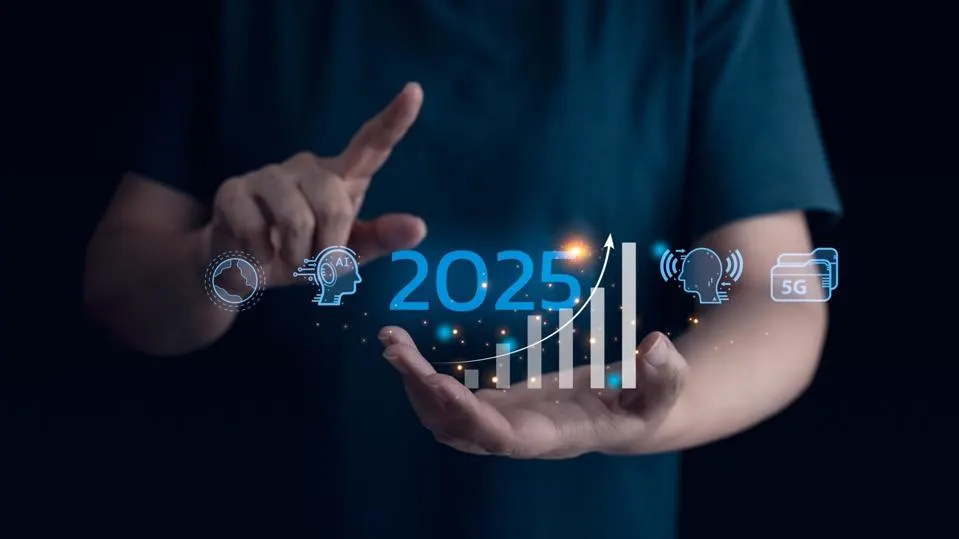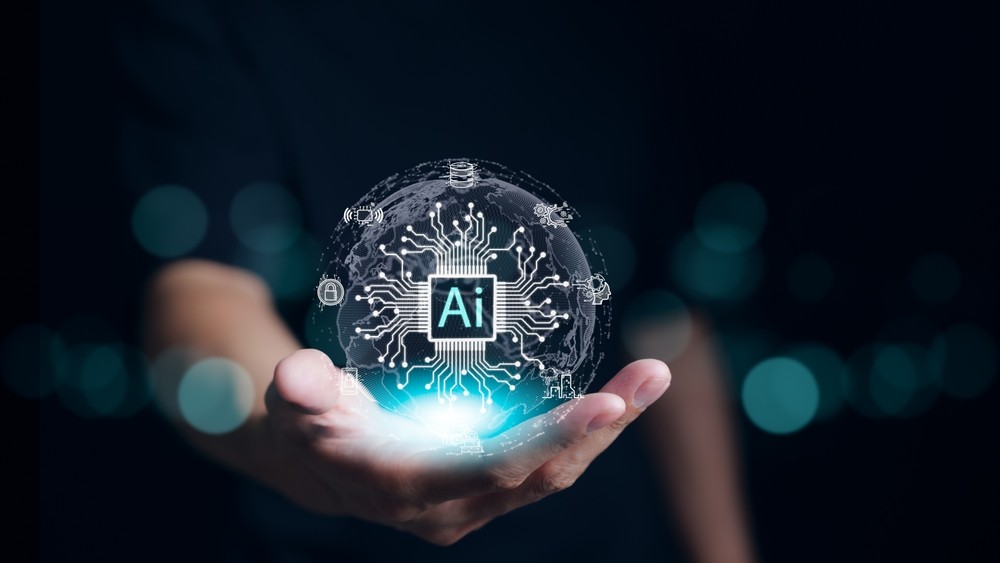How Businesses Used (and Will Continue to Use) Technology During COVID-19
2 July 2021
Businesses used technology during COVID-19 and will continue to do so once we emerge from lockdown orders. Here we discuss the five mega trends including artificial intelligence (AI); robots, drones and vehicle automation; the as-a-service and cloud revolution; 5G network and extended reality that were important during COVID-19.

By necessity, businesses were pressured to experiment with new technologies during COVID-19 to keep operations running. Certainly, the global pandemic caused many challenges, but it also contributed to opportunities as well. Here are some of the technologies businesses utilized, and will continue to use, during and after recovery from COVID-19.
Even before COVID-19, AI helped organizations optimize operations and create insights faster out of the immense amount of data that is collected today. Not only did AI help public health officials predict the surges at health care facilities and ICU demand as the pandemic moved across the globe, but also to accelerate the development of a vaccine or treatment option. In this case, pharmaceutical companies are trying to repurpose existing drugs which is typically a very methodical and time-intensive process. With the support of AI to evaluate the hundreds of terabytes of data available thanks to an unprecedented level of data sharing and cooperation by the pharma industry, this process has been accelerated to hopefully find a vaccine as quickly as possible.
Outside of healthcare and the battle to end COVID-19, companies in every industry experienced upheaval due to the virus. Prior to the pandemic, while the concept of AI was increasingly embraced due to its potential to provide economic value between $9.5 trillion and $15.4 trillion, there were still cultural and organizational hurdles to overcome. Some organizations had plans in place to adopt AI over time. COVID-19 stripped out the luxury of time and organizations had to act to do whatever they could to save business and livelihoods.
Now that we’re emerging out of lockdown in many areas and are trying to establish a “new normal,” AI can help companies understand economic trends, their competitors and customers as well as to identify possible supply-chain disruptions, forecast demand, determine the effectiveness of various strategies and inform decision-making. AI will be important to support efforts for cost cutting in addition to fully understanding the transformation the virus brought to all areas of modern life. Businesses need to understand these changes to create products and services that are responsive in this “new normal.”
While COVID-19 caused organizations to have to act to survive, those that did make it through should take a step back to ensure they have a plan for how to use AI strategically to achieve their organization’s specific goals.
Robotics, Drones and Vehicle Automation
In an infectious environment such as COVID-19 where human contact could threaten lives, machines in the form of robots, drones and automated vehicles stepped in to take over tasks. From monitoring compliance with social distancing mandates in China and Singapore to disinfecting and making deliveries of everything from medical supplies to food, robots, drones and autonomous vehicles were called into service.
COVID-19 significantly disrupted the supply chain and that reality has caused many organizations to prioritize how to remove human involvement wherever possible to avoid a similar fate when faced with another pandemic in the future.
Of course, there were some companies already testing the use of autonomous vehicles before the coronavirus outbreak such as UPS delivering cargo with self-driving trucks, Daimler Trucks operating heavy-duty autonomous trucks in Virginia and Amazon using delivery drones. However, the more these solutions were experienced during COVID-19 and the more “mainstream” they become, there will be more interest in getting to a world where robots are leveraged to make human life safer and more productive. In fact, even before COVID-19, investment in autonomous mobile robot companies was strong, but it is predicted to accelerate post-COVID.
The As-a-Service and Cloud Revolution
Agile companies were better able to pivot when faced with the business and operation realities presented by COVID-19. An essential factor in determining how agile a company can be is their reliance on as-a-service platforms and the cloud because these enable the ability to dial up and down services based on need. What felt to many as an overnight shift to remote workforces and business models required reliance on digital solutions and ability to shift tools and resources quickly.
Consider how brick-and-mortar retail and restaurants had to shift to nearly 100% reliance on selling using digital channels during COVID-19. This business model shift requires different systems to be successful including intelligent tools to help support search and recommendation engines and online customer service solutions.
Companies, no matter the industry, must consider efficiency and resiliency in operations. Cloud-service providers such as IBM, Microsoft, Amazon and others help make this a reality. There’s an extraordinary opportunity for businesses to rethink technology strategy in a post-COVID-19 world.
Faster Networks and 5G
While COVID-19 may have slowed down the anticipated rollout of 5G, the fifth-generation mobile internet, it certainly emphasized why we need faster and more reliable networks. Our world has been transformed in the wake of COVID-19 and many of those changes require a network that can handle varied streams of data from many mobile devices. What may have been seen pre-coronavirus as a “nice to have” has now become as “must-have.”
The 5G network will allow businesses to develop digital solutions that wouldn’t be possible without the reliability and speed of 5G. Therefore, all the technologies discussed here will continue to expand as will the number of use cases for solutions that require the stability of a strong mobile network that can handle tremendous amounts of data from a variety of sources.
Extended Reality (Augmented, Virtual and Mixed Reality)
When we were isolated during the pandemic’s stay-at-home orders, extended reality provided an option to appease human’s social side from the safety of their homes. They could learn about new places while feeling like they were there albeit they were only there virtually. People could “try” on products before purchasing them online such as when shopping for hats or furniture or cosmetics. Even traditional in-person conferences transitioned to virtual events to at least deliver some of the content and programming to attendees.
The activity of interacting with the world through different realities will continue to enhance the human experience from marketing to education to retail to travel. Now that more consumers experienced these new technologies during the pandemic, the more they will prefer (and expect) them once we’re firmly situated in a our new normal. Extended reality will continue to shift the way we work, learn, shop, entertain and interact with each other.
Where to go from here
If you would like to know more about technology during COVID-19, check out my articles on:
- Impact of COVID-19 on Technology
- Why Companies Turn To Digital Marketing To Survive COVID-19
- 9 Future Predictions For A Post-Coronavirus World
- 8 Job Skills To Succeed In A Post-Coronavirus World
- Robots And Drones Are Now Used To Fight COVID-19
Or browse the Artificial Intelligence & Machine Learning to find the metrics that matter most to you.
Related Articles
The Simple ChatGPT Trick That Will Transform Your Business AI Interactions
I believe ChatGPT and other generative AI tools can help pretty much any business.[...]
The Third Wave Of AI Is Here: Why Agentic AI Will Transform The Way We Work
The chess pieces of artificial intelligence are being dramatically rearranged. While previous iterations of AI focused on making predictions or generating content, we're now witnessing the emergence of something far more sophisticated: AI agents that can independently perform complex tasks and make decisions.[...]
How Generative AI Will Change Jobs In Cybersecurity
Ensuring robust cybersecurity measures are in place is more important than ever when it comes to protecting organizations and even governments and nations from digital threats.[...]
The 10 Most Important Banking And Financial Technology Trends That Will Shape 2025
As technological disruption and economic uncertainty continue to reshape the financial landscape, alongside dramatic shifts in consumer behavior and regulatory requirements, 2025 promises to be both challenging and opportunistic for banking and financial services.[...]
The 6 Most Powerful AI Marketing Trends That Will Transform Your Business In 2025
The quiet hum of AI servers is rapidly drowning out the traditional drumbeat of marketing departments worldwide.[...]
AI Everywhere – Scaling AI In The Cloud With Intel® Xeon®6
Today, the omnipresent AI that we’re starting to take for granted has become a critical tool for business.[...]
Sign up to Stay in Touch!
Bernard Marr is a world-renowned futurist, influencer and thought leader in the fields of business and technology, with a passion for using technology for the good of humanity.
He is a best-selling author of over 20 books, writes a regular column for Forbes and advises and coaches many of the world’s best-known organisations.
He has a combined following of 4 million people across his social media channels and newsletters and was ranked by LinkedIn as one of the top 5 business influencers in the world.
Bernard’s latest book is ‘Generative AI in Practice’.










Social Media